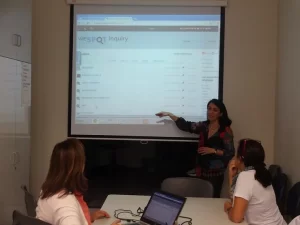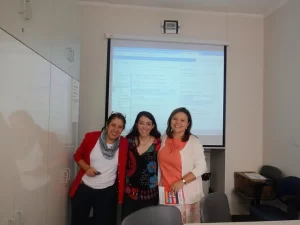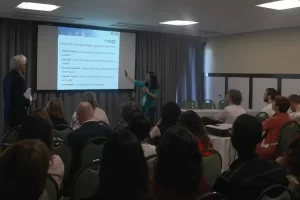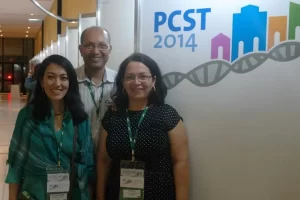Alexandra Okada, Friday 23 May 2014
Dante Alighieri is one of the best schools in Sao Paulo, Brazil, built more than a hundred years ago by Italian immigrants. Currently, it has more than 4,200 students, 115 classrooms, and 5 buildings. Its aims are to connect Brazilian and Italian culture, as well as to promote ethical and educational values through innovative pedagogical approaches, high-quality teaching, and new technologies.
Science teachers have been using Inquiry-Based Learning (IBL) applied to Middle and Secondary school for eight years. All students from 11 to 16 years of age are guided to create their IBL projects for developing their scientific reasoning as part of their formal curriculum. Students who are very interested in science can also participate in extracurricular activities entitled the “Young Scientists Program” to develop more complex projects in partnership with researchers and science centres.
Over the last five years, more than 100 inquiry projects developed by Dante Alighieri’s students were awarded in several exhibitions and international fairs. These included Intel ISEF, Febrace, and other events in Europe and the USA. Students’ comments and outcomes show that the IBL approach has been changing students’ lives.
Sandra Maria Rudella Tonidandel, Science Coordinator, Miriam Brito Guimaraes, Science teacher, and Valdenice Minatel, Educational Technology coordinator, will be collaborating with the weSPOT Project by investigating the use of the weSPOT environment with Dante Alighieri’s students. The first pilot will include around 30 students from two classrooms. Sandra Tonidandel and Miriam Guimaraes are very interested in weSPOT for promoting more collaboration between participants. Furthermore, it will help investigate how weSPOT can facilitate students and teachers to organise, visualise, and access their inquiry projects. Valdenice Minatel is focused on the uses of weSPOT and mobile interfaces.
During the meeting at Dante Alighieri School in the second week of May, Alexandra Okada, Sandra Tonidandel, and Miriam Guimaraes discussed weSPOT features and how students and teachers can include weSPOT in their inquiry projects. Although the school has already been using Moodle, mobile interfaces, and creating Open Educational Resources during their inquiry projects, they started to visualise the potential benefits of weSPOT. “Participants will be more aware of the inquiry workflow and its phases. This will be very useful for teachers’ training as well” (mentioned Guimaraes). After running the first pilot with 60 students, the Dante Alighieri team would like to implement an inquiry project at scale with several students to obtain more data and develop collaborative research on the uses of a social open and mobile collaborative inquiry environment for developing scientific literacy.




